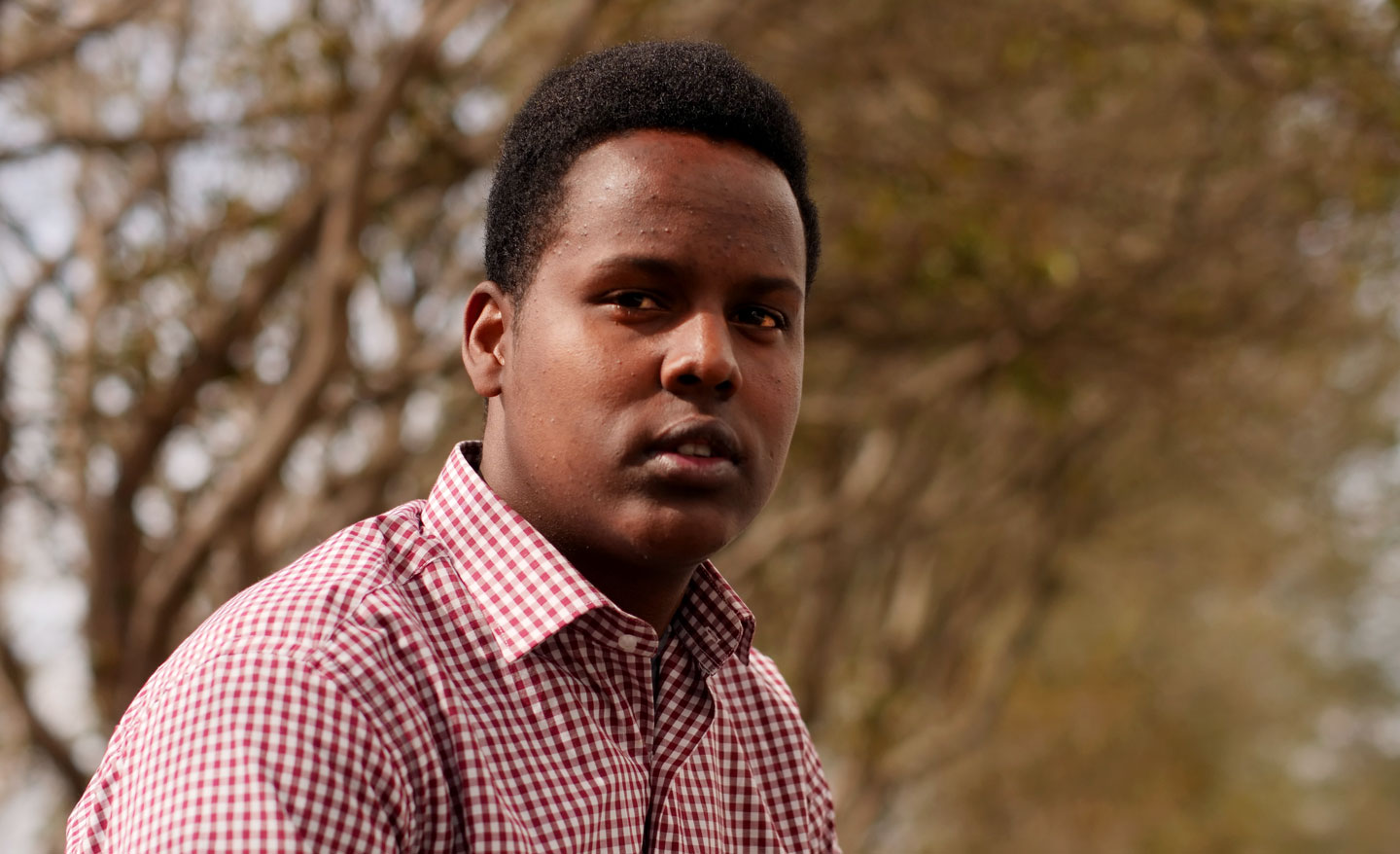Muslim Ban
Ibrahim Mohamed ’20 is in a state of limbo because of travel restrictions imposed on six Muslim-majority nations.
This summer will mark exactly one year since Ibrahim Mohamed ’20 saw his family in Somalia. Whether he will get to visit them in the near future remains uncertain.
Mohamed is one of 121 international students enrolled at Connecticut College, and one of two students impacted by recent travel restrictions on citizens of six predominantly Muslim countries.
A first-year student interested in studying economics, Mohamed arrived at Conn in the fall with what he described as a warm welcome. And then Donald J. Trump become president.
“In the beginning there was a sense of welcoming on the side of the government toward people of other countries,” he said. “It has been a huge transition in a couple of months.”
Within a week of taking office, Trump signed an executive order barring nationals from seven predominantly Muslim nations from entry into the U.S. The order suspended the issuance of visas to citizens of Iran, Iraq, Libya, Somalia, Sudan, Syria and Yemen.
A federal judge in Seattle blocked the first travel ban. A second version of the travel ban, which removed Iraq from the list of nations originally listed, was announced in March and was blocked by a federal judge in Maryland, and in April by a federal judge in Hawaii.
The attorneys general of 16 states and the District of Columbia in April filed a brief asking the 4th U.S. Circuit Court of Appeals to uphold a ruling that blocked a major part of the ban, arguing that it harms universities, medical institutions and the travel industry.
As a student, Mohamed says he was not surprised by the ban.
“With the election, we knew there was going to be this kind of policy because Trump said there is going to be a Muslim ban,” he said. “It was expected.”
The Connecticut College community has extended support to international students impacted by the travel restrictions.
“The founding values of Connecticut College are based on a commitment to basic human rights and the expansive possibilities of liberal education,” Connecticut College President Katherine Bergeron wrote in a letter to the campus community when the first travel restrictions were announced.
“These challenging times call for a recommitment to those values. We will continue to do everything we can to sustain the vibrancy and freedom of our educational community.”
Mohamed is following the advice of Conn’s International Student Adviser Carmela Patton, and will stay in the U.S. for the summer.
Patton said that because Somalia remains one of the six nations included in the 90-day travel ban, the best thing for Mohamed’s academic career is for him to remain in the U.S.
This summer, Mohamed will delay seeing his large family in Somalia and travel to Ohio to visit a brother and sister.
International students are granted F1 Visas to study in the U.S. after successfully passing an application process. In the initial travel ban, though, visa holders reported being denied entry.
“Even if you have a visa it is a bit of a risk to go back because it can be revoked at any point,” Mohamed said.
Despite a shift in the political climate, Mohamed has been encouraged by overwhelming support from people who are against the travel restrictions.
“At the end of the day, it is not an easy process to change suddenly,” he said. “But when you see a lot of people are united against this, it’s a positive take away from this whole thing.”
Mohamed’s fall arrival at Conn marked his first time in the U.S. He is from Somalia’s Somaliland region, where he lived with his 17 siblings. Mohamed and his younger siblings relied on older brothers to support their studies after their father died in 2010.
“Somaliland is a peaceful region,” he said. “We declared ourselves an independent country from Somalia in 1991. We have a different government. People don’t usually see this difference.”
Mohamed is focusing on his studies and is thoughtful about the long-term effects of the policy. In addition to economics, he’s interested in global Islamic studies and computer science.
“I like working with the community in Somaliland, and I’m really interested in politics in other parts of Africa.”
Frustrated at the prospect of not visiting his family in Somalia anytime soon, he wonders why nations that
have been responsible for terrorist attacks, such as Saudi Arabia, were
not included.
“If the point of the ban is to ensure the security of the U.S., the ban makes no sense,” he said. “People from these countries do not pose a threat to the U.S.”
